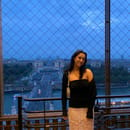Traditionally, character archetypes fit into two categories, there are the heroes and the villains.The good and the bad. Each character portrays a straightforward dichotomy between right and wrong with the clear notion of the favoured character. The anti-hero portrays characters who are more morally complex, they are neither all good nor all bad. They are simultaneously both. Yet the rise of the anti-hero archetype is very interesting as previously there has always been a history of rooting for the hero. The antihero persona has multifaceted personalities that rule our screens as they tend to represent cultural norms and opinions as well as the faults that viewers perceive in themselves. These character flaws have become increasingly normalised and therefore praised when seen on screens.
Some of the most well-liked TV series and films in recent years have examined the anti-hero character type of the morally ambiguous or rather just complex characters that convey varying emotions. Such as Tony Soprano in ‘The Sopranos’- a mob boss attempting to balance family life with his criminal life, Walter White in ‘Breaking Bad’- a skilled chemist who starts manufacturing meth, and Carmy in ‘The Bear’- a chef trying to save his brother’s business but behaves like an egomaniac. I would also argue that Ritchie from ‘The Bear’ is an anti-hero as his character, who at the start of the series is portrayed to be as an extremely unlikable character who cannot process emotions, swears too much and is shown to be irrationally angry all the time. Although viewers have overtime grown to love his character, partially due to character development seen as the series extends and because he creates a representation of struggling with complex relationships and the inability to express or manage emotions. Which leads to them being suppressed or pushed aside. But perhaps his character doesn’t have as much of a central role compared to others in the series to classify him as an anti-hero… (food for thought).
The anti-heroes’ rise in popularity is from the ability to portray the closest thing to true to human form. The anti-hero cannot be all bad, neither can it be all good as viewers cannot sympathise with characters who are unbelievable and untrue. The characters on the screen reflect societal norms and values and viewers are drawn to the realism that these characters provide. The immoral acts that make these characters fit into the anti-hero realm are justified as they serve a purpose in some way. We are able to push aside and excuse their actions as they tend to serve a higher purpose in the end or initially started with good intentions. This is much like how we view ourselves, we are constantly justifying our actions, whether good or bad, to relieve ourselves from being pinned as a bad person or labelled within society
The anti-hero reflects this notion and therefore provides comfort to the viewers. Walter White, for instance, the acts he has carried out would not be justified without the context of his backstory. His story progresses to explore how he is a ruthless drug kingpin. However, if we consider his background, we recall that he primarily started producing meth to support his family following his cancer diagnosis. As this is known to viewers from the get-go, they sympathise with his journey and justify his actions as he has what is considered an acceptable motive. Our attraction to anti-heroes derives from our own moral struggles, and we favour these characters in hopes of our redemption. Viewers enjoy anti-heroes because we see the worst parts of ourselves in them, they highlight the various flaws of being human.


